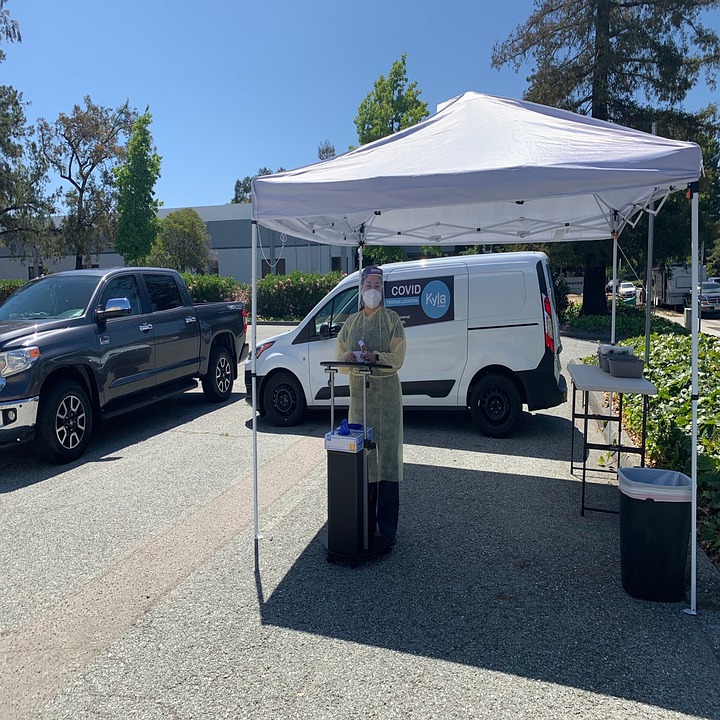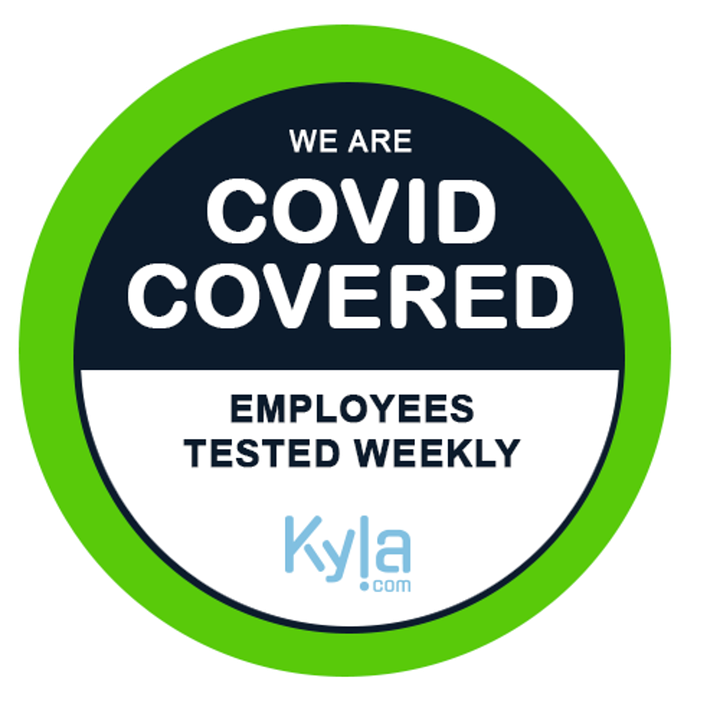
Rates of COVID-19 infections in the U.S. continue to climb, with a reported 5.5 million confirmed cases as of Aug. 18, according to data from Johns Hopkins University. The worst hit counties are Los Angeles, Miami-Dade and Arizona’s Maricopa.
While the case counts are scary, we know there are a significant number of occupational outbreaks -- defined as “two or more laboratory-confirmed COVID-19 cases occurring within the same 14-day period among co-workers in a common workplace.” According to a CDC report looking at Utah from March to June, more than three-quarters of reported outbreaks occurred at places of business, mostly in manufacturing, construction and wholesale trade sites.
The silver lining here is that employers have the power to uncover COVID-19 cases before they spread. This will be a necessary measure for employees to return to their offices during a possibly years-long wait for a vaccine.
Of course, the best course of action for business leaders is prevention, by instituting social distancing rules, mandating the wearing of masks and sanitizing frequently touched surfaces. But despite these measures, outbreaks still happen. The next best course for CEOs and managers is to catch infections before they spread.

We know that symptom checks are not effective in reducing the spread of COVID-19. Many individuals who in fact had the virus have presented themselves as asymptomatic, then spread it to their family members, co-workers, friends and strangers on the street. This is by no means rare, as “asymptomatic persons seem to account for approximately 40 to 45 percent of SARS-CoV-2 infections,” according to researchers at the Scripps Research Translational Institute. After conducting more than 20,000 tests, my company found that 1.7 percent of asymptomatic carriers of COVID-19 have come into work, leading to possible outbreaks.
Testing is required to catch these cases, which is why businesses need experienced partners who will test every employee at a workplace at least once a week. This is essential, and the evidence clearly shows why.
New York experienced one of the earliest outbreaks in the United States, with many of COVID-19’s victims the residents of its nursing homes. To stem the spread of the virus in these facilities during the month of May, the state ordered twice-a-week testing for their residents and staff. As a result, New York was able to contain outbreaks to the point where it reduced the testing requirement to only once per week. Testing clearly works.
Doctors have found that a weekly cadence will prevent instances of tests conducted too early, when someone has yet to develop enough of the virus for a positive result. Or too late, in which case an infected individual has possibly spread SARS-CoV-2 to others. The virus starts “shedding” three days after the initial infection, leaving a three-day window to find an infected individual before they become contagious. This is why monthly testing is ineffective.
If COVID-19 is detected, contact tracers need to be immediately deployed to try to determine the source of the infection and see who the afflicted employee came in contact with. At that point, it becomes about mitigation, which is something every business leader wants to avoid.
Not only is weekly testing the right thing to do to protect employees from suffering from a horrible disease, it will also protect employers from lawsuits in the future. We now know that 30 percent of people who don't get hospitalized have long-term, possibly chronic, ailments as a result of COVID-19. Those that do get hospitalized have long-term heart damage from blood clots and long-term lung damage. Sadly, as we’ve seen over the past few months, many people die as a result of COVID-19.
There have already been two lawsuits against employers related to COVID-19 infections that allegedly started in the workplace. A meat packer was apparently infected with the virus while on the job at a North Aurora, Ill. He then spread it to his wife, who succumbed to complications of COVID-19. The family sued the plant, according to the Chicago Tribute, alleging that the company “was negligent by ‘fail(ing) to warn its employees when it knew or should have known of a COVID-19 outbreak in its meat packing facility’ and ‘actively created a risk of harm for its employees and those with whom its employees were in close contact’ by failing to take steps to limit the virus’ spread.”
The other lawsuit involved two assisted-living facility employees, a mother and daughter, who were allegedly exposed to COVID-19 while at work. They allege the facility provided no protection from the virus. The mother ultimately died.
These cases may not represent every workplace, but they open the door for lawsuits against employers. Employers may be liable if employees contract COVID-19 while on the job, especially in California, which in June was leading the nation in lawsuits against employers.
Testing may seem like an expensive proposition, until you factor in the human toll of the virus and the potential liability of infected employees. Until testing is ubiquitous in this country -- or a treatment or vaccine is developed for COVID-19 -- it falls on employers to take the initiative and make sure their employees remain healthy and safe.
Garick Hismatullin is the CEO of Kyla, the only comprehensive platform that blends onsite weekly testing for COVID-19 with an employee mobile app and employer dashboard.
